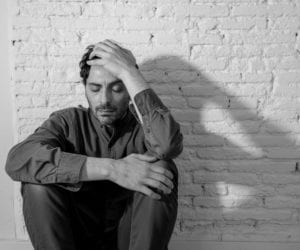The Difference Between Clinical Depression and Feeling Sad

Why You May Be Feeling The Blues And Not Depression
The term ‘depression’ is often used loosely to describe feelings of sadness, sorrow, and unhappiness. Depression and feeling sad are two very different things as depression is a long-lived clinical and diagnosable disease while sadness is simply a temporary feeling that goes away.
When an individual struggles with depression, they are actually struggling with a mental health disorder that can be managed with prescription medication and counseling. According to the National Institue of Mental Health, close to 17 million adults across the U.S. struggle with clinical depression. If you experience your sad mood lingering for longer than average and feel so unmotivated to the point of not wanting to leave your bed or your home, you may want to see a medical assessment in order to determine if you are depressed.
Steps to Take
If you truly feel as though you are struggling with depression, it is not adequate to self-diagnose yourself as this can lead to inaccurate results. While it is not recommended to diagnose yourself, consulting a depression checklist can help narrow down your symptoms. Some of the things to look out for if you feel that you may be struggling with depression are:
- Suicidal thoughts
- Withdrawing from activities that were once enjoyed
- Withdrawing from friends and even family
- Not finding joy in things that used to bring you happiness
- Persistent anxiety that never dissipates
- Relationship issues
- Loss of energy
- Job loss
- Changes in appetite
- Feeling worthless
- Thinking about death
If you are experiencing these symptoms of depression, it’s important that you get in touch with a doctor immediately as these symptoms can have a large and unhealthy impact on your life.
Types of Depression
We often place ‘depression’ into one category, but there are actually several different types of depression:
- Seasonal depression
- Depressive disorder
- Psychotic depression
- Postpartum depression
- Bipolar disorder
These different types of depression all have different side effects. Women are more susceptible to depression due to various rights of passage that only females are affected by such as pregnancy and menstruation. These occurrences have been linked to an increase in depression. Those who are also at a higher risk of depression are those who are at an economic disadvantage, those who have health issues, those with a history of cancer, and those with a mental health condition.
If you are on prescription medication, a side effect may be depression in which case you should speak with your doctor about switching to a drug that you may be a better candidate for.
Identifying depression early-on is crucial as lingering depression can take a devastating toll on every aspect of your life. When your depression is properly managed, you are better able to enjoy life and live without the dark cloud of depression on your shoulders. Whether you struggle with mild, moderate, or severe depression, getting it under control is crucial. There is help available and seeking the right combination of treatments can help you live a more fulfilled and enjoyable life.
If you or someone you know is struggling with depression, a doctor can help you get the treatment you need to stabilize your condition.
If you or a loved one needs help with abuse and/or treatment, please call the WhiteSands Treatment at (877) 855-3470. Our addiction specialists can assess your recovery needs and help you get the addiction treatment that provides the best chance for your long-term recovery.
